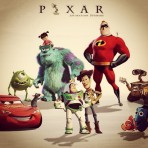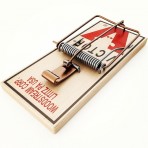Twitter Summary: Sometimes the toughest problems don’t need experts. It’s the youthful inexperience of those with a basic knowledge that tend to yield the most creative of solutions.
Principle
This is the last post dedicated to David Burkus’ book The Myths of Creativity. Prior posts discussed the Mousetrap myth, the Eureka myth, and the Cohesive myth. Today is dedicated to what Burkus calls the Expert myth.
The Expert myth is a “belief that a correlation exists between the depth of a person’s knowledge and the quality of the work that person can produce.” I love that Burkus calls this idea out for being bs. According to Burkus, the science shows that “expertise can actually hinder the creative ability of individuals…[and] sometimes the best insights come from those outside a particular field…”
I feel as if my teenage-punk-rock-self is raising a fist of rage and has been justified in my disapproval of authority figures from my youth.
Burkus tells the story of a Jay Martin’s prosthetics company to drive this point home. Martin Bionics was trying to build a unique ankle prosthetic and had employed a range of experts in the field. His team of experts quickly stalled in their progress and told Martin that what he envisioned was impossible. After a lot of time and money wasted, Martin fired all of the “experts.”
Martin took to giving lectures at colleges about his project and indicated he was looking for interns. After hiring a number of students with a basic understanding of the field, they went to work.
One of the problems Martin explained to his new batch of interns was that, especially in the field of prosthetics, the longer you’re in a certain field, the more you become certain of what is and isn’t possible. Martin specifically chose a batch of younger students because they didn’t know what they couldn’t do. They hadn’t lost the excitement of dreaming beyond their unknown limitations.
After much trial and error, Martin’s new group of young interns created the prosthetic prototype he had envisioned.
Sometimes the toughest problems don’t need experts. It’s the youthful inexperience of those with a basic knowledge that tend to yield the most creative of solutions.
Outsiders, Not Experts and Making Connections

Down the road from this spot is where I was taught that sometimes expertise in music can ruin creativity.
I was living in my friends basement in early 2004 in Laie, Hawaii. We both had our guitar amps turned up to 11 and jamming on familiar AC/DC or NoFX riffs. It was a great time of life. Eating hot pockets every night, drinking copious amounts of Mt. Dew Code Red, watching endless hours of Lord of The Rings extended editions, and driving the neighbors nuts playing our guitars as loud as possible in the middle of the afternoon.
But on one of those mid-day jam sessions with my buddy I took notice of the patterns his fingers on his left hand were making on his fretboard as we jammed, I didn’t recognize them. You see, I grew up through high school and college playing trumpet and being trained in the basics of music theory. So that transferred to my guitar playing. I kept to a basic set of rules that dictated how I played scales and chords. I was always proud of my depth of knowledge when I could show you a mixolydian or ionian scale on my guitar and cause another musician’s eyes to cross (even though I couldn’t play much else!).
So on that muggy afternoon I yelled over the blare of our own awesomeness at my buddy Peter. “What the crap are you playing with your left hand?!” His answer is the principle that has stuck with me since that day and proves the expert myth is nothing but a myth. Peter said, “I don’t know. I just play what feels right.”
I was jealous that Pete could play better than me and didn’t even know what he was doing. I had spent countless hours learning and drilling scales so I could kick out a melody and this guy was just letting his heart and his fingers find it by themselves!
I offered to teach Pete scales, but his answer struck me again. He said something like, “I don’t want to feel boxed in by a memorized scale or shape. I want to be able to go where I feel like I need to.”
I loved and hated him all at once. I loved him because he played so well and was free to do what he wanted, but hated him because he was/likely is still a better player than me without having to put in the time I felt I had to in order to play well. The bugger.
So maybe Burkus and Jay Martin have it right. Maybe we box ourselves in too much by placing such a high value on “expertise” and diminishing the value of playful and brave inexperience. Foundational knowledge plus inexperience is a combination I’d promote.
I don’t think I ever want someone to refer to me as an expert of anything. I’d feel like someone had killed the child inside of me and I had forgotten how to find joy in just the doing of something. That I had stopped letting my heart and fingers tell me where to play.
And that makes me think, our kids grow up telling us how much they want to be just like us. “I want to be just like you, Daddy.” And that is the sweetest thing any child can ever say to a parent. But you know what, I want to be just like my son. Full of magical excitement, hope, mystery, healthy fear, and not believing there’s anything he can’t do. He hasn’t learned what he can’t do yet and I hope I never teach him that. I hope I can grown up to be just like him.
So What?
Don’t underestimate the extreme value of those who are inexperience but have foundational knowledge because that is where your creative ideas will flow from. So invite the more inexperienced to be a part of your team, give that demographic a voice, and shake off the experience myth.
Next Post: It’s a new year and I’ll be telling you about my new plans.







LOve this! I agree whole-heartedly